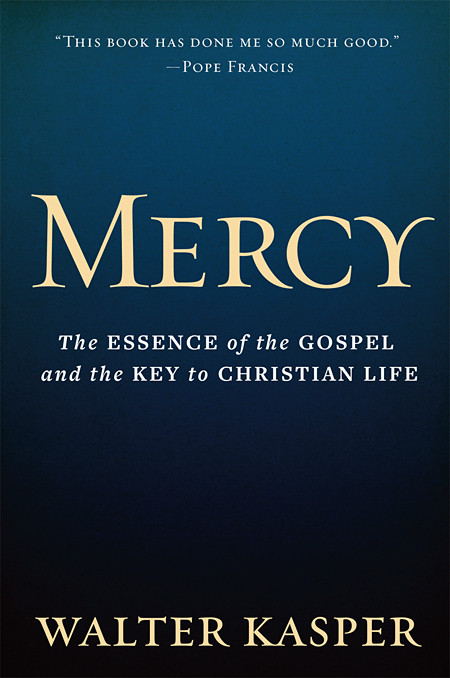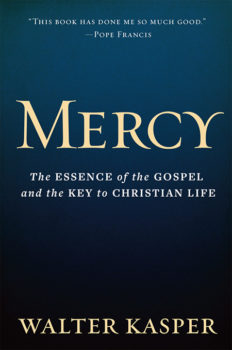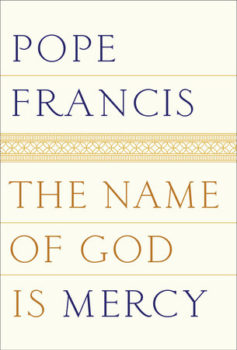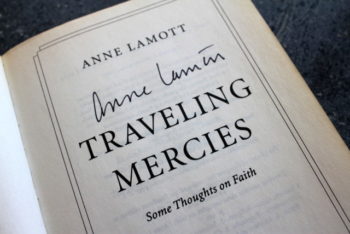
Readings on Divine Mercy
 THE DIARY OF SAINT SISTER FAUSTINA
THE DIARY OF SAINT SISTER FAUSTINA
The DIARY of Sister Faustina, written in the form of a journal, records the last four years of her life. It reveals the depths of her spiritual life and illustrates the high degree of her soul’s union with God. The Lord endowed Sister Faustina with tremendous graces: the gift of contemplation, a deep knowledge of the mystery of the mercy of God, visions, revelations, the hidden stigmata, the gifts of prophecy and of reading human souls, and also the rare gift of mystical espousal.
 MERCY
MERCY
In Mercy, the important new book praised by Pope Francis, Cardinal Walter Kasper examines God’s mercy. He looks at empathy and compassion as a starting point for theological reflection on the topic. He continues by reflecting upon the following: What does it mean to believe in a merciful God? How are divine mercy and divine justice related? How can we speak of a sympathetic-that is, a compassionate-God? Can undeserved woe and divine mercy be brought into harmony with one another? He likewise seeks to address the ethical questions that similarly arise: How can we measure up to the standard of divine mercy in our own actions? What does the message of mercy mean for the practice of the church and how can we cause the central message of God’s mercy to shine in the life of Christians and the church? What does this message mean for a new culture of mercy in our society?
 THE NAME OF GOD IS MERCY
THE NAME OF GOD IS MERCY
In his first book published as Pope, and in conjunction with the Extraordinary Jubilee of Mercy, Pope Francis here invites all humanity to an intimate and personal dialogue on the subject closest to his heart—mercy—which has long been the cornerstone of his faith and is now the central teaching of his papacy.
In this conversation with Vatican reporter Andrea Tornielli, Francis explains—through memories from his youth and moving anecdotes from his experiences as a pastor—why “mercy is the first attribute of God.” God “does not want anyone to be lost. His mercy is infinitely greater than our sins,” he writes. As well, the Church cannot close the door on anyone, Francis asserts—on the contrary, its duty is to go out into the world to find its way into the consciousness of people so that they can assume responsibility for, and move away from, the bad things they have done.
 LITTLE MERCIES (Heather Gudenkauf)
LITTLE MERCIES (Heather Gudenkauf)
Veteran social worker Ellen Moore has seen the worst side of humanity; the vilest acts one person can commit against another. She is a fiercely dedicated children’s advocate and a devoted mother and wife. But one blistering summer day, a simple moment of distraction will have repercussions that Ellen could never have imagined, threatening to shatter everything she holds dear, and trapping her between the gears of the system she works for.
Meanwhile, ten-year-old Jenny Briard has been living with her well-meaning but irresponsible father since her mother left them, sleeping on friends’ couches and moving in and out of cheap motels. When Jenny suddenly finds herself on her own, she is forced to survive with nothing but a few dollars and her street smarts. The last thing she wants is a social worker, but when Ellen’s and Jenny’s lives collide, little do they know just how much they can help one another.
A powerful and emotionally charged tale about motherhood and justice, Little Mercies is a searing portrait of the tenuous grasp we have on the things we love the most, and of the ties that unexpectedly bring us together.
 TRAVELING MERCIES: SOME THOUGHTS ON FAITH
TRAVELING MERCIES: SOME THOUGHTS ON FAITH
From the bestselling author of Operating Instructions and Bird by Bird comes a chronicle of faith and spirituality that is at once tough, personal, affectionate, wise and very funny. With an exuberant mix of passion, insight, and humor, Anne Lamott takes us on a journey through her often troubled past to illuminate her devout but quirky walk of faith. In a narrative spiced with stories and scripture, with diatribes, laughter, and tears, Lamott tells how, against all odds, she came to believe in God and then, even more miraculously, in herself. She shows us the myriad ways in which this sustains and guides her, shining the light of faith on the darkest part of ordinary life and exposing surprising pockets of meaning and hope. Whether writing about her family or her dreadlocks, sick children or old friends, the most religious women of her church or the men she’s dated, Lamott reveals the hard-won wisdom gathered along her path to connectedness and liberation.


No Comments